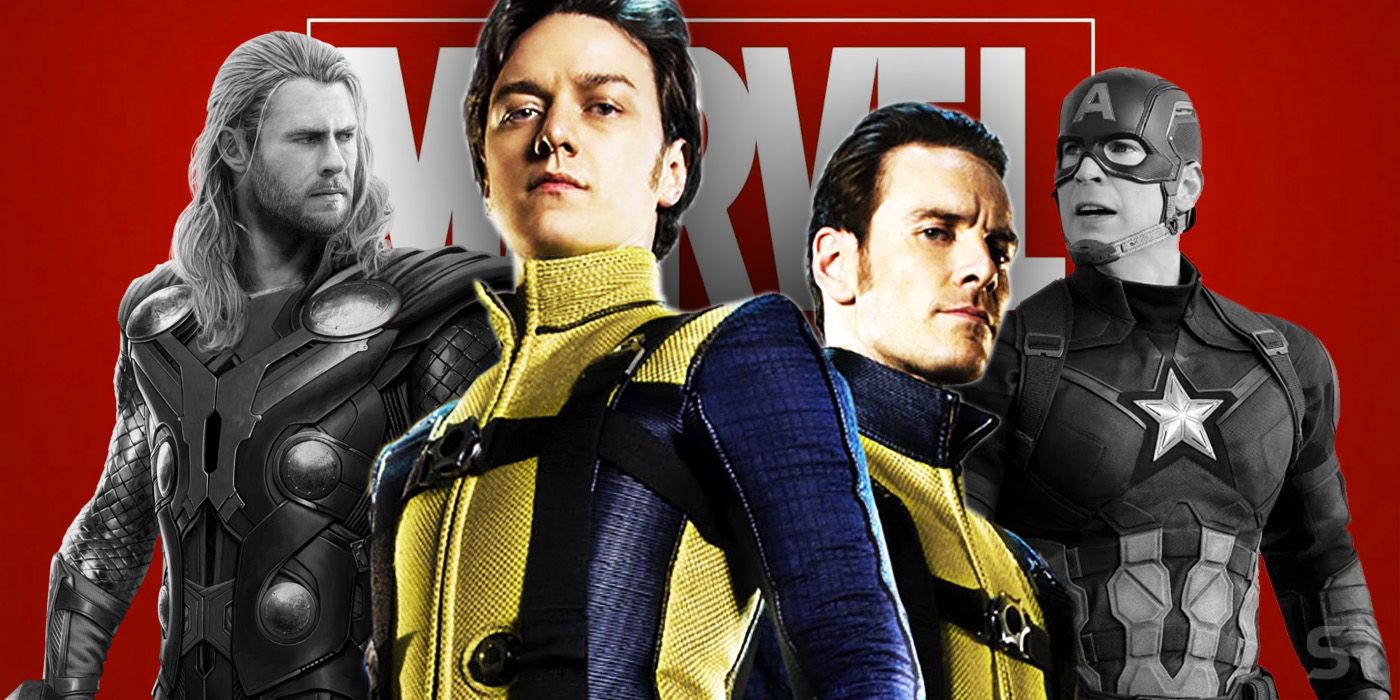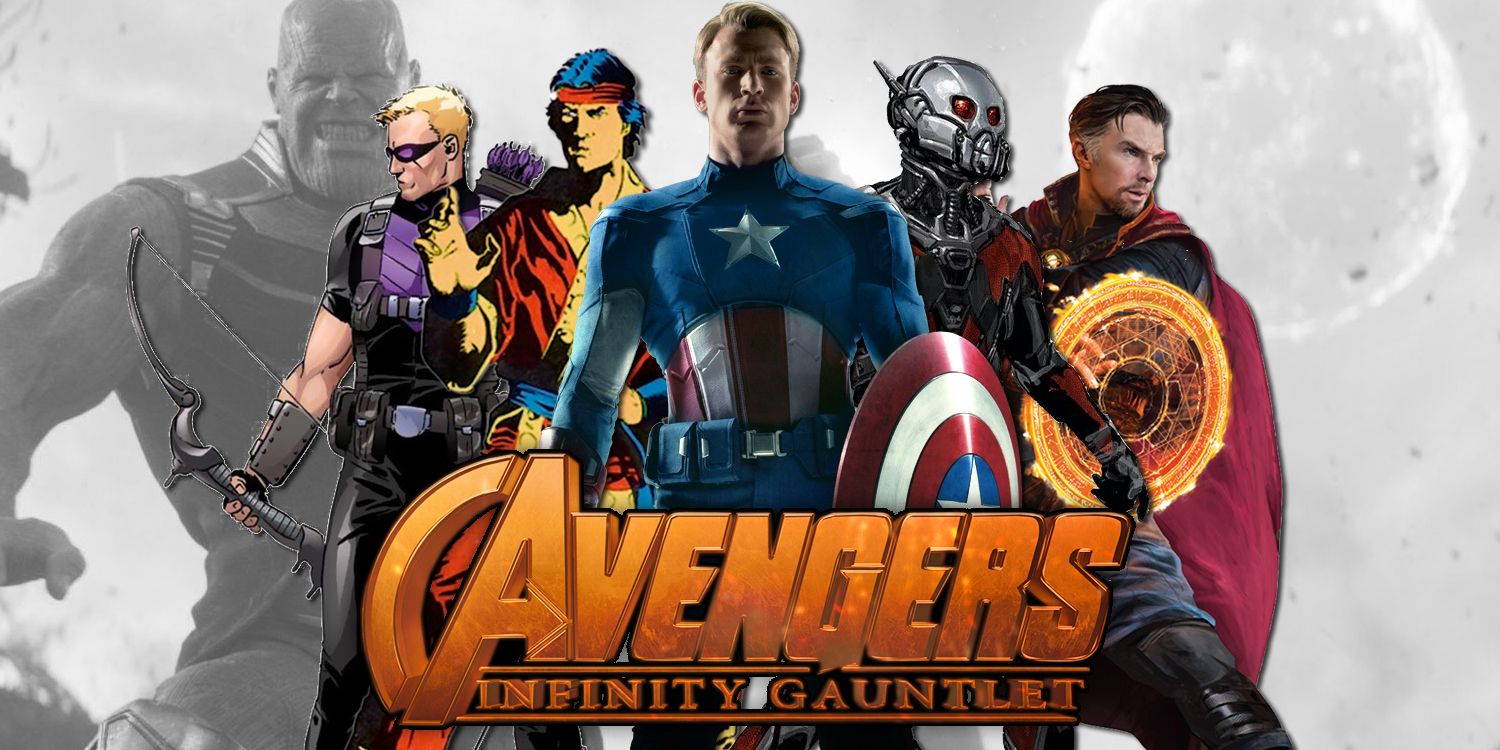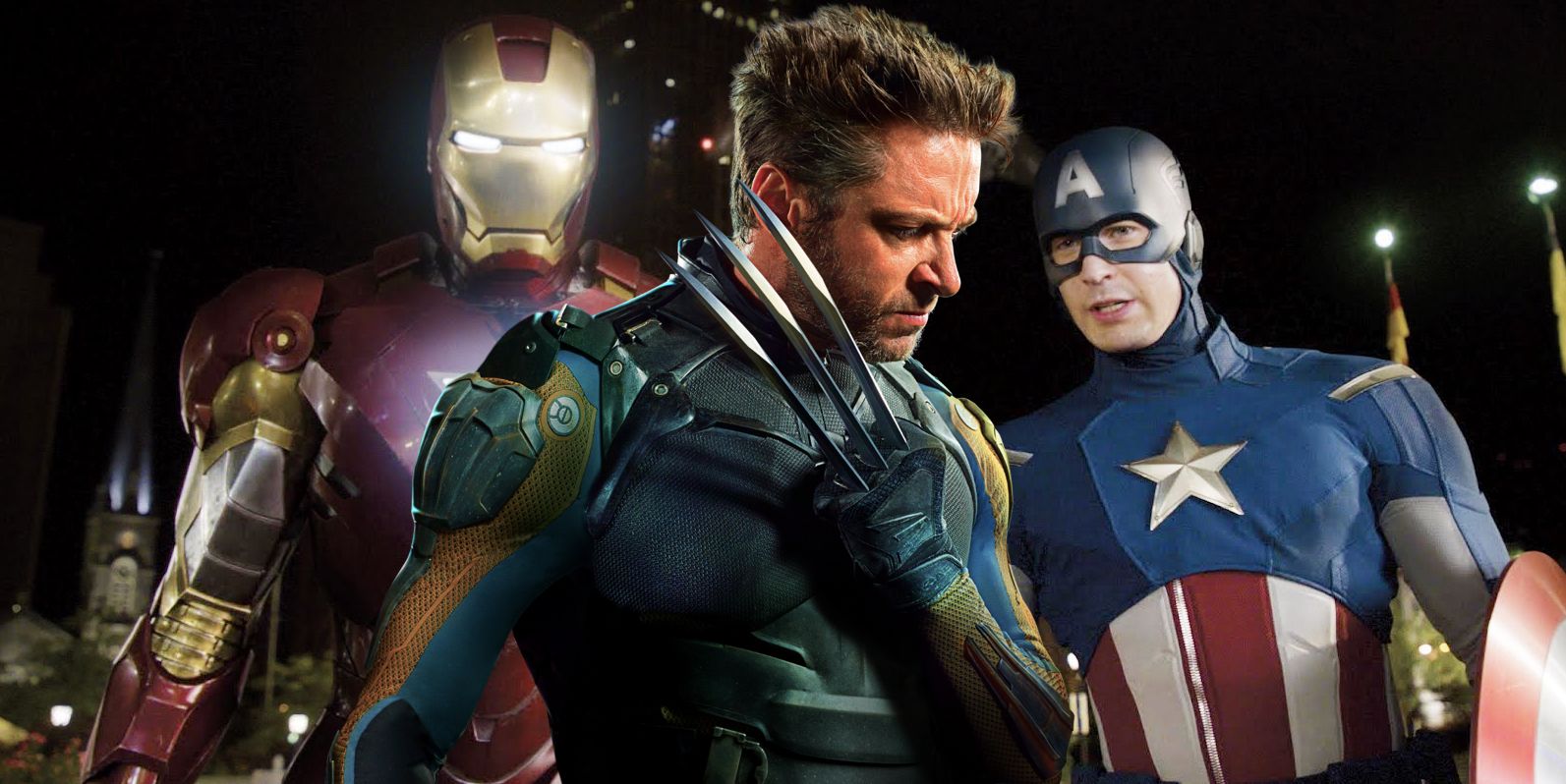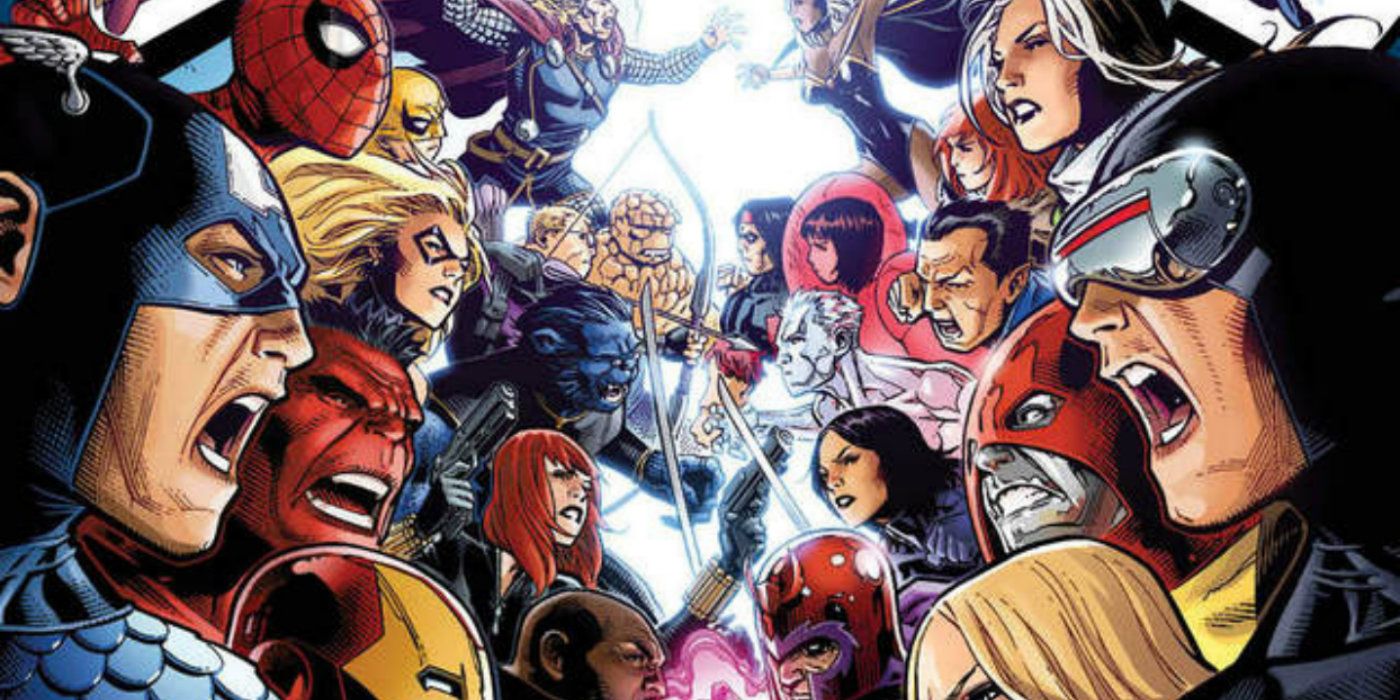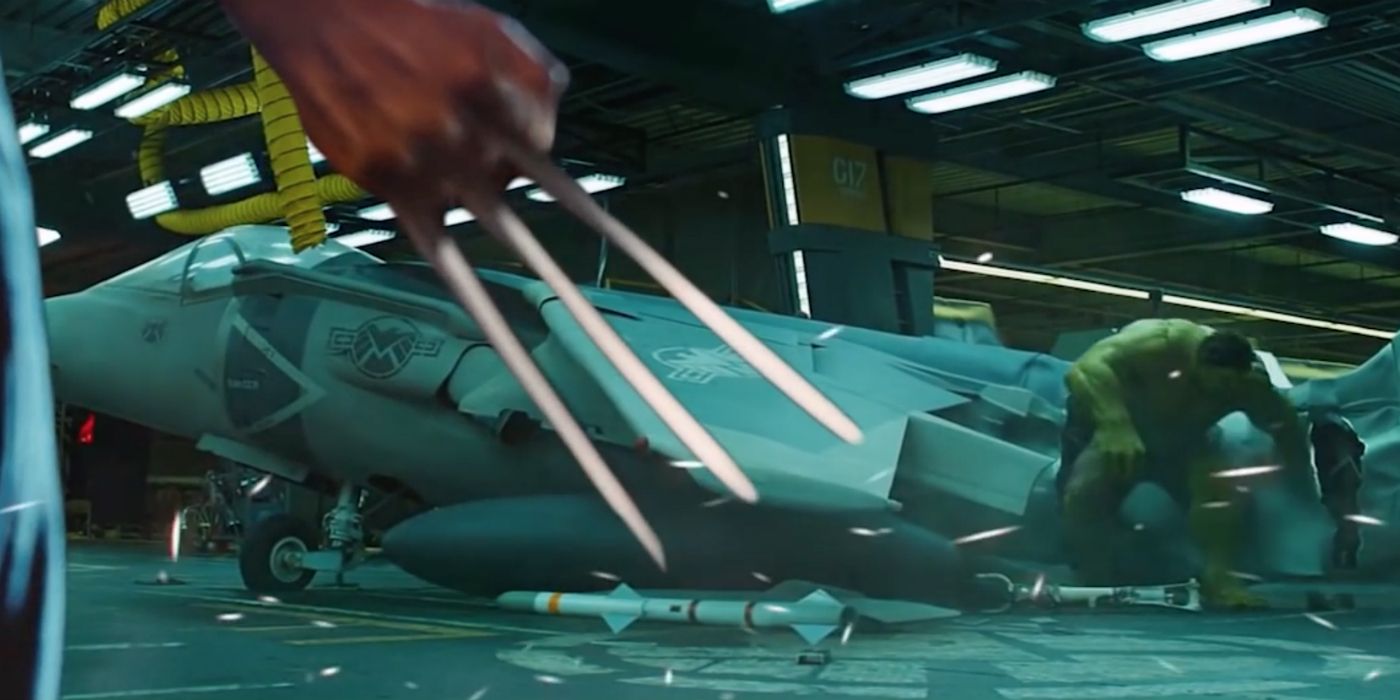The Marvel Cinematic Universe is defined by not having the X-Men - and would likely not been as successful if Kevin Feige had mutants to play with from the start. The Disney purchase of Fox sees the X-Men movie rights return to Marvel, although Professor X and co. are unlikely to appear until 2021 at the earliest, by which point the MCU will be 13 years old and 26-movies strong.
Quite how the MCU will integrate the X-Men is currently unclear; barring a full-on timeline reset, there are many aspects of the merry mutants that don't quite fit in the world that's built up around The Avengers and Guardians of the Galaxy (and, soon, The Eternals). To some, it may seem like it would have been easier for mutants to have always been there in the background.
Related: Don't Expect To See the X-Men in the MCU Until At Least 2021
However, had Marvel Studios owned the rights to the X-Men and related characters from the very start, then the Avengers-led MCU wouldn't even exist as we now know it. The story of the biggest franchise of all-time isn't one of carefully procured brand management but against-the-odds opportunism - something the X-Men could have completely messed up. Today, we're going to look at what could have been.
Before we begin, though, it's worth clarifying that there is a somewhat self-perpetuating aspect to any argument here: Marvel Studios exists in its current state in no small part due to the success of the early Fox X-Men movies (they ignited the modern genre and gave Kevin Feige his industry break), so it's impossible for them not to exist and Marvel to still. For this thought experiment, however, we're not going to try and envision a cohesive alternate reality where this could happen, and rather look at the impact of the mutants being in the roster without explanation.
- This Page: Why The MCU Worked Without The X-Men
- Page 2: The X-Men Would Have Hurt The Avengers
- Page 3: The X-Men Weren't Right For Early Marvel Studios
The MCU Only Exists Because Marvel Didn't Have Their Key Characters
Marvel Studios as it's known only really exists due to its lack of key characters. In the 1990s, then-called Marvel Films was in the licensing business - they would package character rights to be sold off to other production studios who would take home the box office receipts, with Marvel profiting from the licensing cost and ancillary revenue streams like merchandising. Most famous are Spider-Man at Sony and the X-Men at Fox. Not only were these Marvel's most well-known characters, they proved to be the most successful licenses; in the early 2000s, both led to major film trilogies that highlighted the potential of superhero movies without the words "Super" or "Bat" as a prefix.
This motivated Marvel to rethink its strategy. Instead of selling off rights, they would start producing their own movies. Unfortunately, those initial licenses posed a problem; most Marvel characters with strong brand recognition were tied up in other studios. Marvel was stuck with their own B-list. The originally-announced MCU line-up included Captain America, Doctor Strange and Ant-Man, with Iron Man, Hulk and Black Widow worked into their mix when the rights reverted back from their respective studios; big names now, but in the mid-2000s each a hard sell to a mainstream audience.
Read More: The Original Marvel Studios Plan Would Have Led To A Very Different Infinity War
However, this ultimately helped out fledgling Marvel. Without a guaranteed blockbuster audience, the company had to put all efforts into making strong movies and selling the characters from the ground up. Phase 1 of the MCU may feel somewhat quaint in the shadow of where it's gone, but each of those films was made with no handout and thus had to work on their own terms. The lack of any A-list sells led to more outside-the-box actor and director picks - Robert Downey, Jr. as Tony Stark, Kenneth Branagh directing Thor - and the shared universe model became an essential build for interest: promising the lesser-known Avengers was neither here-nor-there, but promising these new characters together was a major hook.
Now, The Avengers are the biggest names in superheroes - their latest movie made more than Justice League's entire run in less than a week - but that only came from Marvel Studios having nothing else to work with. Spider-Man joined up in 2016, but there it was Sony using a Marvel connection to bolster a dying franchise, and while X-Men is more hit-and-miss, its arrival will likewise be viewed as a positive for the mutants as much as a get for the MCU.
Page 2: The X-Men Would Have Hurt The Avengers
X-Men Would Have Been Marvel Studios' Top Tier Characters
Evidently, the X-Men would have presented a major alteration to the MCU's early development. In the early-2000s, they were some of the most popular names in superhero cinema, not just because of the Bryan Singer movies but also the enduring legacy of the 1980s - Chris Claremont's era, in particular, remains one of the most lauded pre-Watchmen runs in all of comics - and the 1990s animated show. Together, these touchstones gave them a status unlike any other Marvel property at that point besides Spider-Man or Hulk (and the latter got that almost entirely from the Bill Bixby/Lou Ferrigno TV series).
Putting the X-Men alongside the originally mooted set of heroes for Marvel Studios, they were undeniably the biggest names in the set. Even late additions like Iron Man and Thor couldn't come close to competing with Wolverine or Magneto. While Marvel has taken a lot of obscure characters to banner status while also having some sit in the wings for a long time, they have typically gone by scale: Black Panther waiting almost a decade for his billion-dollar solo movie is bizarre in hindsight, but considering the low distribution numbers makes some business sense.
Related: Every Record Black Panther Has Broken
This means that, while Iron Man and Hulk became the first entries in the MCU due to their perceived marketability, an X-Men movie would undoubtedly have been first on the docket were they available. And here's where problems come...
X-Men Would Have Distracted From The Avengers
Suggesting the X-Men as the starting point of the MCU isn't just like swapping Iron Man out for another character - they completely alter the makeup of the franchise. Phase 1 of the MCU is very clearly building to The Avengers, introducing each of the core four before locking them in the same room (or Helicarrier). Even when the movies were dealing with entirely unrelated concepts, the seeds were being sown and the explicit promise never too far from view. This gameplan is what most other shared universes - from the ill-fated Dark Universe to steadily-expanded MonsterVerse - have since followed.
However, everything that allowed the original shared universe to take hold could very well have been pushed to secondary concerns if the X-Men had taken precedent. Straight away, the thrill of a team-up is negated by the prior existence of another ensemble, so there's no push to have this marked-out end goal in the first place. Long-term, this could have capped the ability to expand, and that's if the desire to do weirder things was there; we're looking at The Avengers being the equivalent to the Guardians of the Galaxy, out-there, unproven, and added later. And if Thor is having to fight to deserve his movie, then what does that say of later additions like Doctor Strange and Black Panther?
Related: Marvel After Avengers 4: Everything We Know About MCU Phase 4
Kevin Feige is a comic fan, so surely would have been keen to get a bigger roster than just the X-Men out there. But without the necessity to start out with B-list heroes and see where it went, the journey to The Avengers could have been greatly lessened.
Page 3: The X-Men Weren't Right For Early Marvel Studios
The Early MCU May Have Not Been Able To Do The X-Men Justice Either
That issue with the delivery of iconic comic characters goes two ways, however. Would the X-Men have even found success at early Marvel Studios?
As Fox's mixed attempts have shown, the X-Men are hard to get right. There's a lot of production reasons for this, although a big part is that, similar to other A-list heroes such as Spider-Man, Batman and Superman, everybody has their own view on how they should be done. Social equality metaphor, sci-fi adventures, 1990s Saturday morning cartoon: the X-Men have been all of these, yet there will be audiences who find one era they're unfamiliar with a betrayal. Iron Man or Thor didn't have that same cultural cache ten years ago, and that allowed more interpretive takes. Such weight of responsibility didn't fit early Marvel's approach - and that's even assuming they went all-in.
X-Men would be viewed as a guaranteed hit, and we know exactly what a complacent, early-era Marvel Studios looks like; although they are mostly known for consistency and treating characters above all with respect, there have been some cases where corporate malaise got in the way, especially when it was under the control of Ike Perlmutter and Marvel Entertainment (Feige and Marvel Studios moved under direct control of Disney in 2015). The likes of Iron Man 2 and Avengers: Age of Ultron, sequels to proven brands, were noted for behind-the-scenes conflicts, forced attempts to set up the future, and an overall reliance on the coasting thrill of what came before. Neither movie is out-and-out bad, but they're on the lower end of the MCU scale and a root aspect was going in assuming an easy win.
Related: How Marvel Studios Really Works
Without that need to fight to justify, an early Marvel Studios X-Men may not have risen any higher than Fox's iterations. And that could scupper the entire thing before the "A" word is even uttered; the promise of a greater shared universe would be there because it was part of the comics, yet the ability to deliver on it would have been hampered by ill-focus.
None of this is definite, but this seed growing into something resembling the MCU we know doesn't feel likely; the X-Men would have made things too big, too fast, and blinded a long-term plan.
-
The rise of the Marvel Cinematic Universe and The Avengers may have meant X-Men stock has depreciated in recent years - Perlmutter even tried to replace them with the Marvel-owned Inhumans for a period - but the mutants rights always residing at Marvel Studios is no guarantee of success either. The MCU is a bizarre franchise, one that came through creativity in limited circumstances and a little bit of luck. Having something deceptively dependable could have brought Feige's empire down before it even started.

